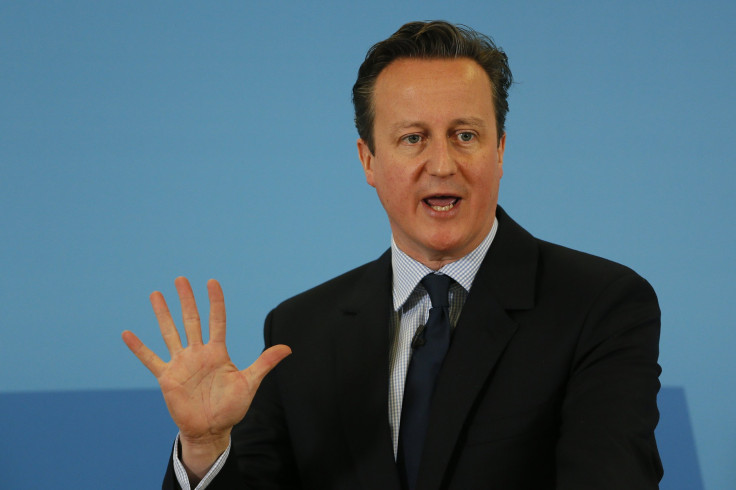UK Will Find 'Jihadi John' And Put Mohammed Emwazi 'Out Of Action,' Britain's Cameron Says

British Prime Minister David Cameron vowed to track down “Jihadi John,” the Islamic State group’s most well-known figure who was identified this week as 26-year-old British national Mohammed Emwazi. The masked militant became infamous after speaking in a clear British accent and then appearing to behead a number of foreign nationals in brutal videos made by the group last year.
“When there are people anywhere in the world who commit appalling and heinous crimes against British citizens, we will do everything we can with the police, with the security services, with all that we have at our disposal to find these people and put them out of action,” Cameron said on Friday, according to Reuters.
Emwazi was revealed as "Jihadi John" by the Washington Post on Thursday, causing a media firestorm in Great Britain. A controversial advocacy group known for supporting known militants and inflammatory remarks further heightened tensions on social media when it held a press conference on Emwazi, who had worked with the group before leaving for Syria. The group contended that harassment at the hands of British intelligence drove Emwazi to take up violence and join the Islamic State group, first for suspecting he was planning to go to Somalia to join al-Shabbab during a vacation to Tanzania in 2009. Critics accused the group, CAGE, of failing to hold Emwazi accountable for his actions.
Emwazi was reportedly brought up in a middle-class home and was known as a soft-spoken young man who dressed stylishly and was a devout Muslim. There are disputes among experts about whether or not Emwazi was on the path to radicalization before his encounters with British intelligence. Former Islamic State group captives who say they were guarded by Emwazi said he was constantly talking about Somalia and made them watch videos about al-Shabbab’s campaign there.
“The government doesn't spend the resources and take the risk, the legal risk of pulling somebody aside, preventing them from traveling, searching through their luggage, just because somebody looks funny,” said former CIA counter terrorism analyst Philip Mudd in an interview with CNN. “There is something else going on here in terms of whatever triggered the government to undertake this investigation that we're missing here," Mudd said.
© Copyright IBTimes 2024. All rights reserved.












